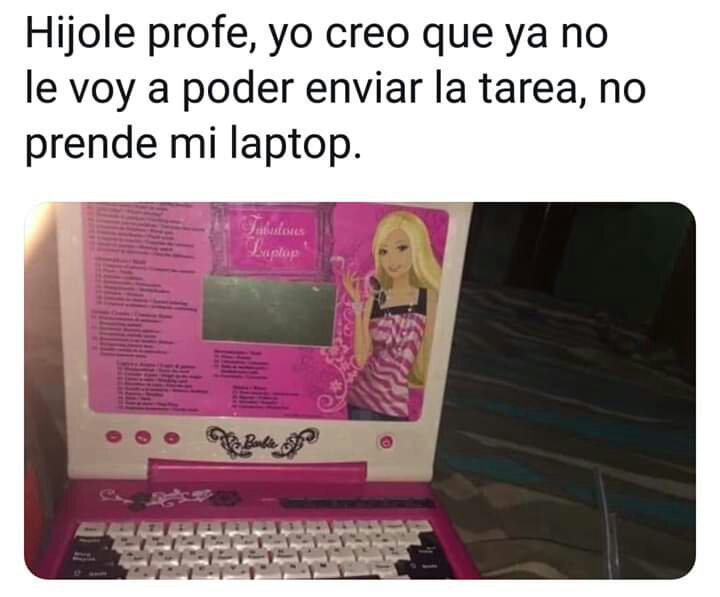Unpacking The Meaning And Context Of "Hijole Yo Creo Que No Se Va A Poder"
There’s an undeniable charm in colloquial expressions that reflect the essence of everyday life and emotions. "Hijole yo creo que no se va a poder" is one such phrase that captures a moment of doubt, resignation, or even humor in the face of uncertainty. This phrase has become a cultural touchstone in Spanish-speaking communities, resonating with people who find themselves navigating life’s unpredictable twists and turns. Whether used in casual conversation or as a reflection of deeper challenges, this phrase carries a wealth of meaning that deserves exploration. In this article, we delve into its origins, cultural significance, and how it continues to resonate with individuals today.
This expression reflects more than just words; it’s a window into the emotional landscape of those who use it. It’s a phrase that can convey frustration, disbelief, or even a lighthearted acceptance of circumstances beyond our control. As we explore its nuances, we’ll uncover why "hijole yo creo que no se va a poder" has become so widely used and how it fits into broader linguistic and cultural trends.
Understanding the context in which this phrase is used can provide valuable insights into human behavior and communication. By examining its usage in different scenarios, we can better appreciate the complexity of language and the ways in which it shapes our interactions. Join us as we unravel the layers of meaning behind this simple yet profound expression.
Read also:Unlocking The Power Of God Bless You In German A Comprehensive Guide
What Does "Hijole Yo Creo Que No Se Va a Poder" Really Mean?
At its core, "hijole yo creo que no se va a poder" translates to "Oh my, I think it’s not going to be possible." But its meaning extends far beyond a literal translation. This phrase often conveys a sense of resignation or disappointment when faced with an obstacle or challenge. It’s a way of expressing that, despite one’s best efforts, certain outcomes may remain out of reach. The tone can vary from serious to humorous, depending on the context in which it’s used.
For example, imagine a group of friends planning a road trip. One person realizes they don’t have enough money for gas, prompting someone else to exclaim, "Hijole yo creo que no se va a poder." In this scenario, the phrase serves as a humorous acknowledgment of the situation’s impracticality. However, in more serious contexts, such as discussing a work project or family obligation, the same phrase can carry a heavier emotional weight.
Why Do People Use "Hijole Yo Creo Que No Se Va a Poder"?
The phrase’s popularity stems from its versatility and relatability. People use it to articulate feelings of helplessness or frustration when things don’t go according to plan. It’s a way of processing disappointment while maintaining a sense of humor or pragmatism. Moreover, it reflects a cultural tendency to embrace uncertainty with grace and resilience.
In many cultures, there’s an emphasis on perseverance and adaptability. "Hijole yo creo que no se va a poder" embodies this spirit by acknowledging limitations while still leaving room for hope or alternative solutions. It’s not about giving up entirely but rather accepting the reality of the moment and moving forward from there.
How Does "Hijole Yo Creo Que No Se Va a Poder" Fit Into Everyday Conversations?
This phrase often appears in casual, informal settings where people feel comfortable expressing their true thoughts and emotions. It’s commonly heard among friends, family members, or coworkers during moments of shared experience. For instance:
- When trying to organize a last-minute event but realizing resources are lacking.
- During discussions about financial constraints or logistical challenges.
- While troubleshooting technical issues that seem insurmountable.
Its usage in these scenarios highlights its role as a conversational tool for navigating the complexities of modern life. By incorporating it into their vocabulary, people can connect with others on a deeper level and foster a sense of camaraderie.
Read also:Courtney Taylor Olsen The Rising Star In The World Of Entertainment
Can "Hijole Yo Creo Que No Se Va a Poder" Be Used in Professional Settings?
While this phrase is typically associated with casual conversations, it can also find its way into professional environments under certain circumstances. In workplaces that value open communication and authenticity, employees might use it to express concerns or highlight potential roadblocks without sounding overly negative.
For example, during a team meeting, a project manager could say, "Hijole yo creo que no se va a poder cumplir el plazo si no reasignamos recursos." This statement acknowledges the challenge while inviting constructive dialogue about possible solutions. However, it’s important to consider cultural norms and audience expectations before using such expressions in formal settings.
What Are Some Alternatives to "Hijole Yo Creo Que No Se Va a Poder"?
Depending on the situation, there may be alternative phrases that convey similar meanings but with slightly different tones. Some options include:
- "Parece complicado, pero vamos a intentarlo."
- "No creo que sea factible, pero tal vez haya otra opción."
- "Quizás necesitemos replantear nuestra estrategia."
These alternatives offer a more polished or optimistic approach, making them suitable for situations where maintaining professionalism is crucial. Nonetheless, "hijole yo creo que no se va a poder" remains a favorite among those who appreciate its authenticity and relatability.
Is "Hijole Yo Creo Que No Se Va a Poder" Unique to Specific Regions?
While the phrase is widely recognized throughout the Spanish-speaking world, its usage may vary slightly depending on regional dialects and cultural nuances. In some areas, speakers might substitute "hijole" with other interjections like "ay" or "vaya." These variations reflect the diversity of linguistic traditions across different communities.
Regardless of these differences, the underlying sentiment remains consistent: a recognition of life’s uncertainties and a willingness to adapt when necessary. This universality is part of what makes "hijole yo creo que no se va a poder" so enduringly popular.
What Are the Origins of "Hijole Yo Creo Que No Se Va a Poder"?
To fully appreciate the significance of this phrase, it’s essential to explore its historical roots. Linguists believe that "hijole" originated as a softened version of a stronger exclamation, reflecting a cultural tendency toward politeness and restraint. Over time, the phrase evolved to include the phrase "yo creo que no se va a poder," adding a layer of introspection and personal reflection.
This evolution underscores the dynamic nature of language and how it adapts to meet the needs of its users. As societies change, so too do the ways in which people express themselves. "Hijole yo creo que no se va a poder" is a prime example of this ongoing process, serving as both a linguistic artifact and a living expression of contemporary culture.
How Has "Hijole Yo Creo Que No Se Va a Poder" Evolved Over Time?
In recent years, the phrase has gained new relevance in the digital age, where rapid communication and global connectivity have expanded its reach. Social media platforms have played a significant role in popularizing it, allowing users to share memes, videos, and other content that incorporate the phrase in creative ways. This digital transformation has helped keep "hijole yo creo que no se va a poder" relevant and engaging for younger generations.
At the same time, its enduring appeal lies in its ability to resonate with people from all walks of life. Whether used in person or online, this phrase continues to serve as a powerful reminder of the shared human experience of navigating life’s challenges with grace and humor.
Can "Hijole Yo Creo Que No Se Va a Poder" Be Translated Into Other Languages?
While direct translations may not fully capture the phrase’s nuance, equivalent expressions exist in other languages. For example, English speakers might say, "I don’t think it’s going to happen" or "I doubt it’s possible." However, these translations lack the emotional depth and cultural context that make "hijole yo creo que no se va a poder" so unique.
This highlights the importance of preserving linguistic diversity and appreciating the richness of different cultures. By embracing expressions like "hijole yo creo que no se va a poder," we can deepen our understanding of one another and celebrate the beauty of human communication.
Conclusion: Why Does "Hijole Yo Creo Que No Se Va a Poder" Matter?
In conclusion, "hijole yo creo que no se va a poder" is more than just a phrase; it’s a reflection of the human experience. It captures the complexity of emotions we encounter daily, from frustration and disappointment to humor and resilience. By exploring its meaning, usage, and evolution, we gain valuable insights into the ways language shapes our interactions and helps us make sense of the world around us.
As we continue to navigate life’s uncertainties, expressions like "hijole yo creo que no se va a poder" remind us of the importance of staying adaptable and maintaining a sense of perspective. Whether used in casual conversation or professional settings, this phrase serves as a testament to the power of language to connect and inspire.
Table of Contents
- Unpacking the Meaning and Context of "Hijole Yo Creo Que No Se Va a Poder"
- What Does "Hijole Yo Creo Que No Se Va a Poder" Really Mean?
- Why Do People Use "Hijole Yo Creo Que No Se Va a Poder"?
- How Does "Hijole Yo Creo Que No Se Va a Poder" Fit Into Everyday Conversations?
- Can "Hijole Yo Creo Que No Se Va a Poder" Be Used in Professional Settings?
- What Are Some Alternatives to "Hijole Yo Creo Que No Se Va a Poder"?
- Is "Hijole Yo Creo Que No Se Va a Poder" Unique to Specific Regions?
- What Are the Origins of "Hijole Yo Creo Que No Se Va a Poder"?
- How Has "Hijole Yo Creo Que No Se Va a Poder" Evolved Over Time?
- Can "Hijole Yo Creo Que No Se Va a Poder" Be Translated Into Other Languages?


